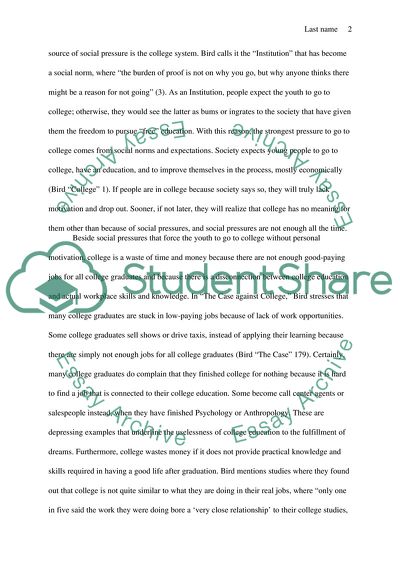Cite this document
(Colleges Contribution to Higher Income and Happiness Essay Example | Topics and Well Written Essays - 1750 words, n.d.)
Colleges Contribution to Higher Income and Happiness Essay Example | Topics and Well Written Essays - 1750 words. https://studentshare.org/education/1812264-college-is-not-necessary
Colleges Contribution to Higher Income and Happiness Essay Example | Topics and Well Written Essays - 1750 words. https://studentshare.org/education/1812264-college-is-not-necessary
(Colleges Contribution to Higher Income and Happiness Essay Example | Topics and Well Written Essays - 1750 Words)
Colleges Contribution to Higher Income and Happiness Essay Example | Topics and Well Written Essays - 1750 Words. https://studentshare.org/education/1812264-college-is-not-necessary.
Colleges Contribution to Higher Income and Happiness Essay Example | Topics and Well Written Essays - 1750 Words. https://studentshare.org/education/1812264-college-is-not-necessary.
“Colleges Contribution to Higher Income and Happiness Essay Example | Topics and Well Written Essays - 1750 Words”. https://studentshare.org/education/1812264-college-is-not-necessary.


